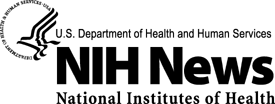| New Web Portal to Advance Wide Range of Protein
Studies
The Protein Structure Initiative (PSI), an effort supported by
the National Institutes of Health (NIH), has launched an online
resource that will enable scientists from across biomedical disciplines
to easily access a wealth of information about proteins and to
speed discovery about these molecules.
The new portal, the PSI Structural Genomics Knowledgebase (PSI
SGKB), is an entry point to all of the protein structure and production
resources created by the PSI, a program started in 2000 to ascertain
the three-dimensional structures of thousands of proteins. To date,
the PSI research centers have generated 2,800 protein structures,
and, in the process, developed techniques that significantly improve
the steps of structure determination.
"Many of these products have always been available, just not all
in one place," said Jeremy M. Berg, Ph.D., director of NIH's National
Institute of General Medical Sciences, which supports the PSI. "The
ability to search the resources developed through the PSI should
help a wide range of scientists make use of them to advance their
own studies."
The PSI SGKB is designed primarily for biologists who, while not
protein structure experts, may want to know more about a particular
protein related to their research in genetics, biochemistry, pharmacology,
bioinformatics, clinical medicine, or other areas.
From the home page, researchers can enter the sequence of a protein
into a search box to quickly find the corresponding structure and
ones like it, plus details about function and reports on how the
structures were generated. A glossary of terms and acronyms helps
to translate the information.
The site is a gateway to other useful information, including descriptions
of new technologies and methods, a list of publications detailing
key findings, supplemental funding opportunities for functional
studies, and links to resources outside of the PSI. The site's
users also can easily access the PSI-Materials Repository, a resource
under development for ordering PSI-generated clones that can speed
studies of protein structure and function.
Researchers may visit the PSI SGKB site to learn how to make a
protein of interest or find out about tools they could use in their
labs. They also could identify potential collaborators and read
about the latest developments in a particular area of structural
biology.
The PSI SGKB is directed by Helen Berman, Ph.D., a structural
biologist and bioinformaticist at Rutgers University in New Jersey.
She played an instrumental role in establishing and, since 1998,
has directed the Protein Data Bank, which now archives more than
49,000 molecular structures.
Because the site is intended to be an interface with a broader
research community, Berman said she wants to ensure that it meets
users' needs. She welcomes feedback on the site, which may be submitted
through the PSI SGKB or sent directly to NIGMS program director
Ward Smith, Ph.D., at smithwar@nigms.nih.gov or
301-443-9375.
Planned enhancements to the site include the addition of more
searchable databases and editorial and news content about PSI advances.
Berman said, "The PSI SGKB unites a vast amount of information,
making it an incredible resource that will bring together a community
of researchers to really advance our knowledge of biology and health."
Visit the PSI SGKB at http://kb.psi-structuralgenomics.org/KB.
Background information about the PSI is available on the NIGMS
Web site at http://www.nigms.nih.gov/Initiatives/PSI/.
NIH's National Center for Research Resources (NCRR) also supports
the PSI.
To arrange an interview with Jeremy M. Berg, Ph.D., or Helen Berman,
Ph.D., please contact the NIGMS Office of Communications and Public
Liaison at 301-496-7301 or info@nigms.nih.gov.
NIGMS (http://www.nigms.nih.gov)
supports basic biomedical research that is the foundation for advances
in disease diagnosis, treatment, and prevention.
NCRR (http://www.ncrr.nih.gov)
provides laboratory scientists and clinical researchers with the
environments and tools they need to understand, detect, treat,
and prevent a wide range of diseases.
The National Institutes of Health (NIH) — The Nation's
Medical Research Agency — includes 27 Institutes and
Centers and is a component of the U.S. Department of Health and
Human Services. It is the primary federal agency for conducting
and supporting basic, clinical and translational medical research,
and it investigates the causes, treatments, and cures for both
common and rare diseases. For more information about NIH and
its programs, visit www.nih.gov.
|

